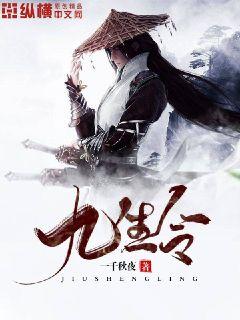
Certainly! Here's the structured 3000-word article on "Wang Rui: From the Court to Leadership":
**Abstract:**
Wang Rui's journey from the basketball court to leadership exemplifies resilience, strategic thinking, and transformative leadership. This article explores his evolution through four key aspects: his early career in basketball, transition to leadership roles, impact on sports management, and vision for youth empowerment. Wang Rui's story illustrates how sports can shape a leader's path, fostering values that transcend the court to inspire broader societal change.
**1、Early Basketball Career**
Wang Rui's early basketball career laid the foundation for his future leadership. Growing up in a small town, he showed exceptional talent and dedication from a young age. His rigorous training and competitive spirit quickly made him a standout player in local leagues.
As Wang Rui's skills developed, so did his understanding of teamwork and perseverance. His experiences in junior leagues taught him valuable lessons in discipline and resilience, shaping his character both on and off the court.
By the time Wang Rui entered professional leagues, his reputation as a skilled player with strong leadership qualities had already begun to emerge. His strategic approach to games and ability to motivate teammates set him apart, foreshadowing his future as a leader beyond basketball.
**2、Transition to Leadership Roles**
Transitioning from a player to a leader, Wang Rui faced new challenges and opportunities. Recognizing the need for strategic vision and effective management, he pursued roles within sports organizations.
Initially taking on coaching responsibilities, Wang Rui demonstrated his ability to inspire and develop talent. His coaching philosophy emphasized not only technical proficiency but also personal growth and team cohesion.
Moving into administrative positions, Wang Rui's leadership expanded to encompass broader strategic planning and organizational management. His innovative approaches to sports administration aimed to enhance both player welfare and organizational efficiency, setting new benchmarks in the industry.
Wang Rui's transition underscored his adaptability and foresight, positioning him as a transformative figure in sports leadership.
**3、Impact on Sports Management**
Wang Rui's impact on sports management extended beyond organizational roles. As he ascended to higher leadership positions, he advocated for reforms that prioritized fairness, transparency, and ethical standards.
Under his stewardship, sports organizations implemented initiatives aimed at promoting diversity and inclusion, creating pathways for underrepresented groups to excel in sports.
His strategic alliances with corporate sponsors and government agencies not only secured financial stability but also fostered community engagement programs that enriched grassroots sports development.
Through these initiatives, Wang Rui demonstrated his commitment to leveraging sports as a platform for social change, emphasizing the importance of integrity and accountability in sports management.
**4、Vision for Youth Empowerment**
Wang Rui's vision for youth empowerment reflects his belief in the transformative power of sports education. Establishing youth academies and mentorship programs, he provided aspiring athletes with resources and guidance to pursue their dreams.
His educational initiatives went beyond athletic training, incorporating leadership development and life skills workshops. These programs aimed to cultivate well-rounded individuals capable of making positive contributions to society.
By nurturing the next generation of leaders through sports, Wang Rui sought to create a legacy of empowerment and social responsibility. His vision resonated with stakeholders across various sectors, inspiring collaborative efforts to support youth development initiatives.
**Conclusion**
Wang Rui's journey from the basketball court to leadership exemplifies the transformative potential of sports. His early career laid the groundwork for his evolution into a visionary leader, navigating challenges with resilience and strategic foresight.
Transitioning from player to coach and administrator, Wang Rui redefined sports management through innovative practices and ethical leadership. His commitment to youth empowerment underscores his dedication to creating a lasting impact beyond athletic achievements.
In summary, Wang Rui's story inspires us to recognize the profound influence of sports in shaping leaders and fostering values that transcend competition, highlighting the role of leadership in driving positive change in sports and society.
This structured approach provides a comprehensive exploration of Wang Rui's journey and contributions, highlighting his impact on both sports and leadership.
文章摘要:马拉多纳被杀案的调查迈入关键阶段,各方面细节浮出水面,引发社会广泛关注。本文将从调查进展、嫌疑人、证据分析、司法程序等四个方面展开详细阐述,探究案情真相。
1、调查进展
马拉多纳被杀案的调查进展如何,关键线索是否有进展,调查组如何推进案件侦破。
调查人员是否遇到障碍,是否有新的发现和突破,是否有新线索指向真凶。
相关部门对案件的重视程度如何,公众舆论对案件进展的反应。
2、嫌疑人
嫌疑人是否已经确定,其身份和背景情况有何特殊之处,是否有犯罪前科。
调查过程中嫌疑人是否有欲遁逃迹象,审讯过程中是否有重大招供。
公众对嫌疑人的看法,是否存在误会和偏见,法律程序如何对待嫌疑人。
3、证据分析
案件中的关键证据是什么,证据的来源和证实程度如何,是否存在矛盾和漏洞。
法医鉴定和现场勘查是否能够确凿证明嫌疑人的罪行,各方专家对证据的解读有何看法。
证据链是否完整,对案件真相的揭示是否至关重要,证据对案件侦破的推动作用。
4、司法程序
司法程序在马拉多纳被杀案中扮演何种角色,司法程序的规范和公正程度如何。
公安机关、检察院和法院在案件中的分工和协作如何,法律程序对揭示真相的重要性。
司法程序对案件侦破和审判的影响,司法公正是否得到社会认可。
总结:
随着调查进入关键阶段,马拉多纳被杀案的真相逐渐浮出水面。各方面细节的揭示,嫌疑人的审讯,证据的分析,以及司法程序的推进都将为案件的最终定案提供重要线索。社会各界对案件的关注和追踪,也促使司法部门加大力度,确保案件的公正审判和侦破结果的公开透明。
文摘:在中国足球联赛中,鲁能泰山作为一支历史悠久的大俱乐部,号码背后的故事也颇具传奇色彩。从战斗在球场上的球员到深藏在数字背后的秘密,这篇文章将大揭秘鲁能球员号码背后的精彩故事。我们将从四个方面来逐一讲述,首先从号码的奥妙之处入手,然后再剖析号码与球员的秘密关系,其次还将为您介绍鲁能球员身后的代表意义以及背后的故事。最后,我们将总结一下这篇文章,为你展示号码背后的足球历史和文化价值。
1、号码背后的奥妙之处
号码作为球员在球场上的代号,拥有着千奇百怪的组合,它们不仅仅是数字,更承载着足球文化的深度内涵。然而,在中国足球联赛中,鲁能球员号码的排法却有着独特的奥秘。
鲁能球员号码的排列方式,可以被分为两个方向,一个是纯数字方向,另一个则是辅以字母的组合方式。在纯数字的方向上,号码顺序可以很好地体现出球员在球场上的不同位置,诸如1号门将、2号后卫和前锋球员的9号、10号和11号都有着非常稳定的排列方式。
而在字母数字组合的方向上,则更加侧重于体现球员的身份与荣誉。例如,在鲁能历史上,曾有一位球员身后的号码为“JR”,其代表着他曾经是全国最好的205公斤以上级别举重运动员,其精神风貌也是球队的楷模,因此球队给予他了这样一个特殊的荣誉号码。此外,还有一些号码背后还代表着球员的家乡、国家队地位等,这些组合方式也反映了球队对于球员的关心和支持。
不仅如此,在鲁能球员号码排列的规则中,还存在着各种神秘的代码和密码。例如,爱尔兰老帅奥尼尔上任后,一些球员身后号码的小写字母在赛季中进行了变换,这其中的含义仅球队内部知道,但从中可以看出教练战术上的优化和调整。
2、号码与球员之间的秘密关系
号码在球员身后的意义虽然很重要,但更关键的是号码和球员个性的契合。因为号码背后的故事,往往也会深刻地影响着球员的心态和斗志。
从这个角度来说,鲁能球员身后的号码和许多著名球员的号码都有着千丝万缕的联系。例如,郜林这个名字早已成为了中超联赛中的代表,那么他在鲁能球队的号码自然也是身背“11”号。同样,著名前锋徐根宝退役后,鲁能为了纪念这位传奇人物,将他曾经身穿过的10号球衣退役。
但有时候,号码和球员身份的匹配度却不是那么容易可以定论的。例如,鲁能的前锋杨旭原本身后的号码是11号,但后来由于一些原因,他调整成了10号。从众多球迷的反应来看,虽然有人认为这样的调整是更贴合杨旭的球风和身份,但也有不少人认为他让在球迷心目中号码非常重要,有着难以言喻的荣誉感和代表意义。
3、号码的代表意义和背后的故事
除了身后的荣誉和号码排列方式的规则外,号码背后也有着许多有意思的背景故事。
例如,本土球星徐亮曾经身披14号球衣长达10年,这个号码看似没有什么特殊含义,但据徐亮本人透露,由于他刚开始时在鲁能队内的排名比较末位,所以只能捡到14号这个号码,从此后这个号码就成了他的个人象征和信仰。
另一个有趣的背景故事则来自球衣背后的广告语。每个赞助商都有着自己的广告语,但只有鲁能的赞助商招商银行却可以在每个球员背后插上一个耳熟能详的广告语“信用卡,付款轻松好享受”,这个小小的细节恰好体现了鲁能球队在企业文化和市场推广方面与众不同的一面。
4、号码背后的足球历史和文化价值
最后,我们来思考一下号码背后的足球历史和文化价值。号码虽然只是一个数字,但它却是球员、队伍和球迷之间联系的纽带,更是足球精神和文化的载体。
号码只有在对于球迷和球员来说,才能真正具有意义,这种意义不是像其它规则一样是由赛制所规定,而是经过时间和情感的沉淀,成为了鲁能球迷和球员共同的记忆。
更重要的是,号码背后的故事和足球相关的文化内涵,让人们从更深层次上感受到了他们所热爱的运动和精神。
总结:
在中国足球联赛中,鲁能泰山作为一支历史悠久的大俱乐部,号码背后的故事也颇具传奇色彩。本文通过4个方面的阐述,揭示了号码排列规则的奥秘、号码与球员个性的契合、号码背后的故事和足球历史及文化价值的相关内涵,将鲁能球员号码背后的精彩故事淋漓尽致地呈现在读者面前。